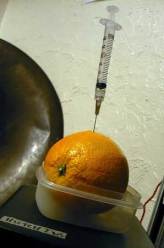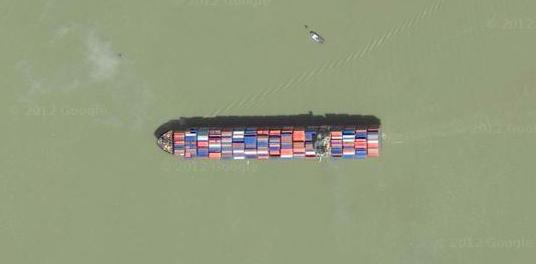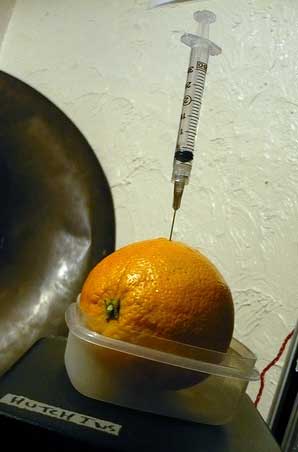
This is a photo of an injection well. The orange thing is Earth. (Photo from celesteh.)
Maybe you should start filling random bottles around the house with water? From FuelFix:
Hydraulic fracturing, a process where a mixture of water, sand and chemicals are pumped underground under high pressure, could be polluting nearby surface water sources through five different ways, according to a Stony Brook University study.
The study found water could be contaminated by transportation spills, well casing leaks, leaks through fractured rock, drilling site surface discharge and wastewater disposal. The greatest contamination risks came from wastewater disposal.
“The used hydraulic fracturing fluid is transported to a wastewater treatment facility and discharged to streams,” according to the report. The researchers said those treatment facilities may not be equipped to handle the chemicals found in the used fracking wasterwater, leading to contaminated drinking water if it is released into nearby water sources, according to the report.
The report largely mirrors findings from ProPublica, which found that these are already leaking.
A key point, from the conclusion of the report itself:
Given typical well spacing in the Marcellus Shale, if only 10% of the region is developed, this would equate to 40,000 wells. Using the best-case median risk determined above, this volume of contaminated water would equate to several hours flow of the Hudson River or a few thousand Olympic-sized swimming pools. This potential substantial risk suggests that additional steps be taken to reduce the potential for contaminated fluid release from hydraulic fracturing of shale gas.
In other words, the sheer scale of the amount of wastewater created increases the likelihood of a spill.
However, fracking companies say not to worry. Who are you going to believe, them or “science”? (You should believe science.)



